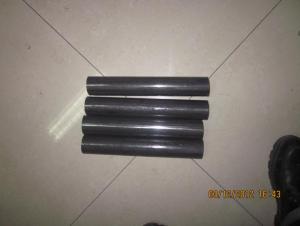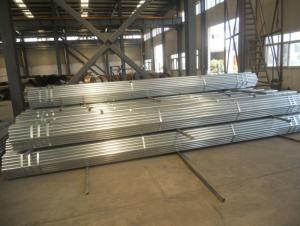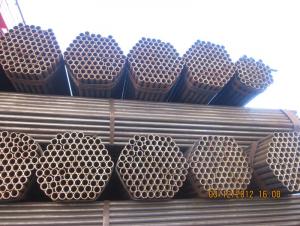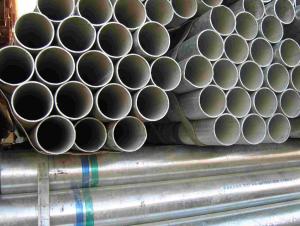ERW Welded Steel Pipes For Fence
- Loading Port:
- Tianjin Port
- Payment Terms:
- TT or L/C
- Min Order Qty:
- 50MT m.t.
- Supply Capability:
- based on order m.t./month
OKorder Service Pledge
OKorder Financial Service
You Might Also Like
Good price of ERW Welded Steel Pipes For Fence ,
Application of ERW Welded Steel Pipes For Fence :It is widely applied to line pipe and casing and tubing in oil transportation and casing field, and it is used in Low,high pressure liquid and gassy transportation and it is also good Structure pipe (for furniture, window, door, building , bridge, mechanical etc).
Package of ERW Welded Steel Pipes For Fence : bundles with anti-rust painting and with plastic caps
Standard of ERW Welded Steel Pipes For Fence : API SPEC 5L, API SPEC 5CT, ASTM A53, GB/T9711.1
Steel Grade of ERW Welded Steel Pipes For Fence :API SPEC 5L: B, X42, X46, X52, X56, X60, X65,API SPEC 5CT: J55, K55, N80, L80-1 ,ASTM A53: A, B, C
GB/T9711.1:L242、L290、L320、L360、L390、L415、L450
Sizes of ERW Welded Steel Pipes For Fence :
*Remark: Besides below sizes, we also can arrange production based on requirement of customers
|
OD |
WT |
WEIGHT | ||||
|
INCH |
MM |
SCH |
MM |
INCH |
KG/M |
LB/INCH |
|
1 1/2” |
48.3 |
STD-40 |
3.68 |
0.145 |
4.09 |
2.75 |
|
1 1/2” |
48.3 |
XS-80 |
5.08 |
0.2 |
5.47 |
3.68 |
|
2” |
60.3 |
STD-40 |
3.91 |
0.154 |
5.49 |
3.69 |
|
2” |
60.3 |
XS-80 |
5.54 |
0.218 |
7.56 |
5.08 |
|
2 1/2” |
73 |
STD-40 |
5.16 |
0.203 |
8.72 |
5.86 |
|
2 1/2” |
73 |
XS-80 |
7.01 |
0.276 |
11.52 |
7.74 |
|
3” |
88.9 |
STD-40 |
5.49 |
0.216 |
11.41 |
7.67 |
|
3” |
88.9 |
XS-80 |
7.62 |
0.3 |
15.43 |
10.37 |
|
3 1/2” |
101.6 |
STD-40 |
5.74 |
0.226 |
13.71 |
9.21 |
|
3 1/2” |
101.6 |
XS-80 |
8.08 |
0.318 |
18.83 |
12.65 |
|
4” |
114.3 |
STD-40 |
6.02 |
0.237 |
16.24 |
10.91 |
|
4” |
114.3 |
XS-80 |
8.56 |
0.337 |
22.55 |
15.15 |
|
5” |
141.3 |
STD-40 |
6.55 |
0.258 |
21.99 |
14.78 |
|
5” |
141.3 |
XS-80 |
9.53 |
0.375 |
31.28 |
21.02 |
|
6” |
168.3 |
STD-40 |
7.11 |
0.28 |
28.55 |
19.19 |
|
6” |
168.3 |
XS-80 |
10.97 |
0.432 |
42.99 |
28.89 |
|
8” |
219.1 |
STD-40 |
8.18 |
0.322 |
42.98 |
28.88 |
|
8” |
219.1 |
XS-80 |
12.7 |
0.5 |
65.3 |
43.88 |
|
10” |
273 |
STD-40 |
9.27 |
0.365 |
60.9 |
40.92 |
|
10” |
273 |
80 |
15.09 |
0.594 |
96.95 |
65.15 |
|
12” |
323.8 |
STD |
9.53 |
0.375 |
74.61 |
50.13 |
|
12” |
323.8 |
40 |
10.31 |
0.406 |
80.51 |
54.1 |
|
12” |
323.8 |
XS |
12.7 |
0.5 |
98.42 |
66.14 |
|
12” |
323.8 |
80 |
17.48 |
0.688 |
133.38 |
89.63 |
|
14” |
355.6 |
40 |
11.13 |
0.438 |
95.51 |
64.18 |
|
14” |
355.6 |
XS |
12.7 |
0.5 |
108.48 |
72.9 |
|
14” |
355.6 |
80 |
19.05 |
0.75 |
159.71 |
107.32 |
|
16” |
406.4 |
XS-40 |
12.7 |
0.5 |
124.55 |
83.69 |
|
18” |
457 |
STD |
9.53 |
0.375 |
106.23 |
71.38 |
|
18” |
457 |
40 |
14.27 |
0.562 |
157.38 |
105.75 |
|
18” |
457 |
80 |
23.83 |
0.938 |
257.13 |
172.78 |
|
20” |
508 |
40 |
15.09 |
0.594 |
185.28 |
124.5 |
|
20” |
508 |
80 |
26.19 |
1.031 |
314.33 |
211.22 |
Picturers of of ERW Welded Steel Pipes For Fence ,
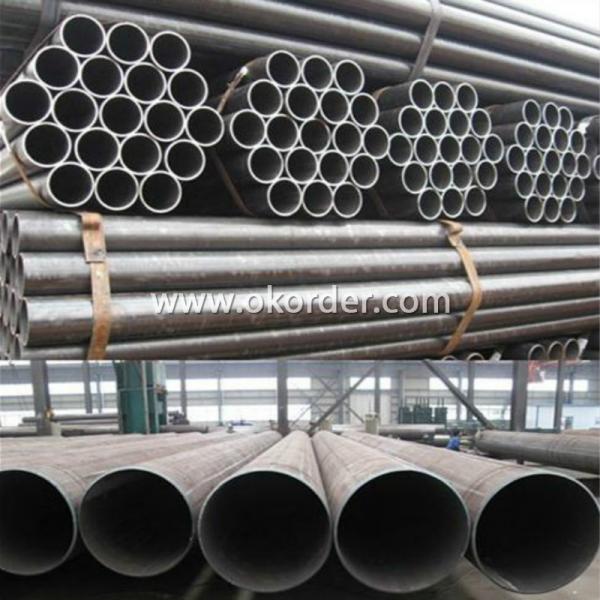
Production process.
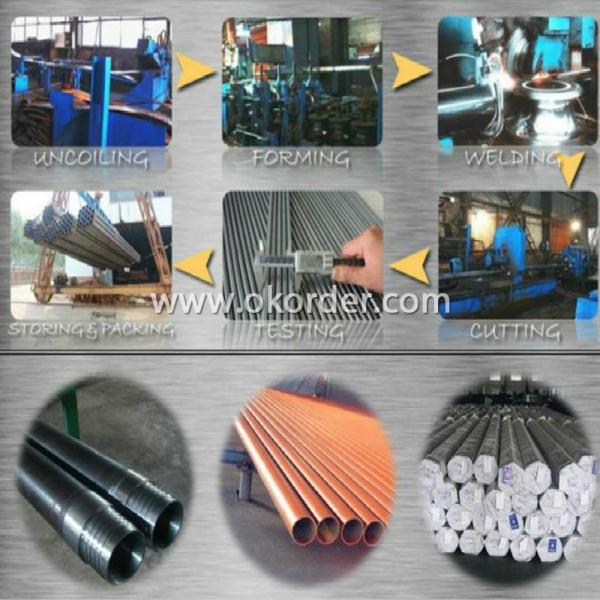
Products in Warehouse.
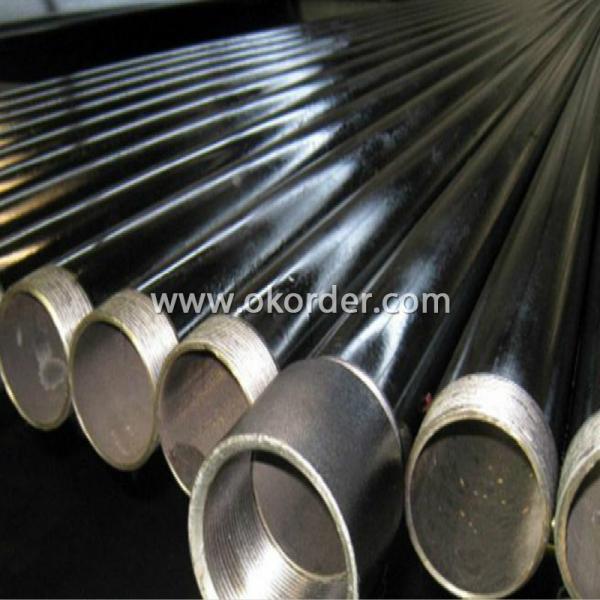
Details by close vision.
We are a company that producing all kinds of pipes, square pipes, Our company's products are exported to Brazil , Indonesia , Singapore , Central Asian countries, and other countries and regions.
Welcome to contact us for ERW Welded Steel Pipes .
- Q:How are steel pipes measured and categorized?
- Steel pipes are typically measured and categorized based on their outer diameter (OD) and wall thickness. The OD is measured in inches or millimeters, while the wall thickness is measured in inches or centimeters. Pipes are further categorized based on their schedule, which refers to the wall thickness and determines the pressure rating of the pipe. The schedule is denoted by a letter or number, such as Schedule 40 or Sch 80. These measurements and categorizations help in selecting the appropriate steel pipe for different applications and ensure compatibility with fittings and other components.
- Q:Can steel pipes be used for telecommunications cables?
- No, steel pipes cannot be used for telecommunications cables. Telecommunications cables typically require materials with high electrical conductivity and insulation properties, such as copper or fiber optics. Steel pipes are not suitable for transmitting signals and would interfere with the transmission of data.
- Q:Can steel pipes be used for oil refinery applications?
- Yes, steel pipes can be used for oil refinery applications. Steel pipes offer many advantages for oil refinery applications including high strength, durability, and resistance to corrosion. They are able to withstand high pressure and temperature conditions that are common in oil refinery operations. Steel pipes are also easy to transport and install, making them a popular choice for oil refinery projects. Additionally, steel pipes can be customized to meet specific requirements such as size, thickness, and coating, making them suitable for a wide range of oil refinery applications.
- Q:How do steel pipes compare to other types of piping materials?
- Steel pipes are widely considered to be one of the most durable and strong types of piping materials available. They offer superior strength, resistance to corrosion, and can withstand high pressure and extreme temperatures. Compared to other materials such as PVC or copper, steel pipes have a longer lifespan and are more suitable for heavy-duty applications. Additionally, steel pipes are highly recyclable, making them an environmentally friendly choice.
- Q:How do steel pipes handle soil movement?
- Steel pipes are highly resistant to soil movement due to their strength and durability. The rigid nature of steel pipes allows them to withstand ground shifting and settling without deforming or breaking. Additionally, steel pipes are often installed with proper anchoring and support systems to further enhance their ability to handle soil movement.
- Q:Can steel pipes be used for oil and gas well production?
- Yes, steel pipes are commonly used for oil and gas well production due to their high strength, durability, and resistance to corrosion.
- Q:What are the factors affecting the lifespan of steel pipes?
- The lifespan of steel pipes can be influenced by several factors. 1. Corrosion is a primary factor that can considerably diminish the lifespan of steel pipes. Over time, exposure to moisture, chemicals, and other corrosive elements can result in rusting and degradation of the pipe material. 2. The environment in which the steel pipes are installed plays a vital role in their longevity. Extreme temperatures, humidity, and exposure to various weather conditions can expedite the corrosion process and weaken the pipe structure. 3. The quality of the water flowing through the steel pipes can also affect their lifespan. Water with high levels of acidity or alkalinity, excessive chlorine, or other contaminants can cause corrosion and deterioration of the pipe material. 4. The way steel pipes are installed can impact their lifespan. Poor installation practices, such as inadequate support or incorrect alignment, can create stress points and structural weaknesses, making the pipes more susceptible to failure. 5. Regular maintenance and timely repairs are crucial for maximizing the lifespan of steel pipes. Proper cleaning, inspection, and corrosion protection measures can help identify and address potential issues before they escalate and cause significant damage. 6. The design and quality of steel used in pipe manufacturing are important factors in determining their lifespan. High-quality steel with appropriate alloy composition and thickness provides better resistance to corrosion and mechanical stress, ensuring a longer lifespan. 7. The durability of steel pipes can be influenced by the load and pressure they are subjected to. Excessive pressure or frequent variations in pressure can stress the pipe walls, leading to fatigue or failure over time. By considering and addressing these factors, it is possible to extend the lifespan of steel pipes and ensure their reliable performance over an extended period of time.
- Q:What are the advantages of using steel pipes in marine applications?
- There are several advantages of using steel pipes in marine applications. Firstly, steel pipes are highly durable and have a high resistance to corrosion. This is crucial in marine environments where pipes are constantly exposed to saltwater, which can cause rapid deterioration of materials. Steel pipes are able to withstand the harsh conditions and maintain their structural integrity for extended periods of time. Another advantage of using steel pipes in marine applications is their strength. Steel is a strong and robust material that can withstand the high pressure and extreme conditions often encountered in marine operations. This makes steel pipes ideal for transporting fluids, such as water, oil, and gas, in marine environments. Additionally, steel pipes offer excellent fire resistance. In the event of a fire on a ship or offshore platform, steel pipes can provide a reliable fire barrier, preventing the spread of flames and ensuring the safety of personnel and equipment. Furthermore, steel pipes are highly versatile and can be easily fabricated to meet specific requirements. They can be manufactured in various sizes, shapes, and thicknesses, allowing for customization to fit the specific needs of marine applications. Steel pipes can also be easily welded together, providing a seamless and leak-proof system. Lastly, steel pipes are cost-effective in the long run. Although the initial investment may be higher compared to other materials, the durability and longevity of steel pipes make them a cost-efficient choice. With minimal maintenance and a long lifespan, steel pipes reduce the need for frequent replacements, resulting in significant cost savings over time. In conclusion, the advantages of using steel pipes in marine applications include their durability, resistance to corrosion, strength, fire resistance, versatility, and cost-effectiveness. These factors make steel pipes a reliable and efficient choice for various marine operations, ensuring the safe and efficient transport of fluids in harsh marine environments.
- Q:Can steel pipes be used for signposts or street lighting poles?
- Yes, steel pipes can be used for signposts or street lighting poles. Steel pipes are commonly used in construction due to their strength, durability, and resistance to various environmental conditions. They provide a sturdy and reliable support structure for signposts and street lighting poles, ensuring their stability and longevity.
- Q:Can steel pipes be used for geothermal energy systems?
- Yes, steel pipes can be used for geothermal energy systems. Steel pipes are commonly used for their durability and resistance to high temperatures, making them suitable for transporting hot water or steam in geothermal energy systems. Additionally, steel pipes have excellent corrosion resistance, which is crucial for geothermal environments that often contain corrosive substances.
1. Manufacturer Overview |
|
|---|---|
| Location | Tianjin, China |
| Year Established | 1997 |
| Annual Output Value | Above Three Million To Five Million RMB |
| Main Markets | Main land |
| Company Certifications | ISO 9001:2010;API 5L; |
2. Manufacturer Certificates |
|
|---|---|
| a) Certification Name | |
| Range | |
| Reference | |
| Validity Period | |
3. Manufacturer Capability |
|
|---|---|
| a)Trade Capacity | |
| Nearest Port | Tianjin |
| Export Percentage | 40% - 50% |
| No.of Employees in Trade Department | 300-500 People |
| Language Spoken: | English; Chinese |
| b)Factory Information | |
| Factory Size: | 40,000 square meters |
| No. of Production Lines | Above 10 |
| Contract Manufacturing | OEM Service Offered; Design Service Offered |
| Product Price Range | Average |
Send your message to us
ERW Welded Steel Pipes For Fence
- Loading Port:
- Tianjin Port
- Payment Terms:
- TT or L/C
- Min Order Qty:
- 50MT m.t.
- Supply Capability:
- based on order m.t./month
OKorder Service Pledge
OKorder Financial Service
Similar products
New products
Hot products
Hot Searches
Related keywords
